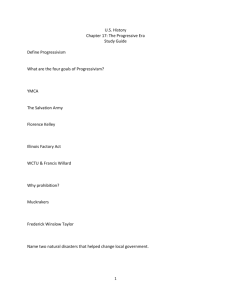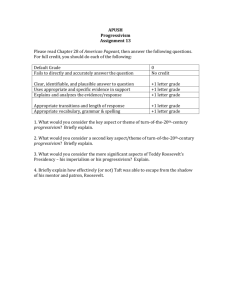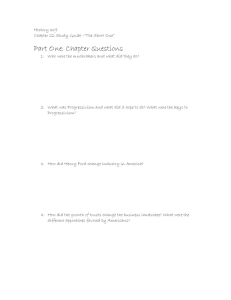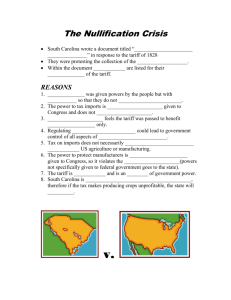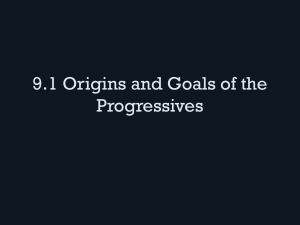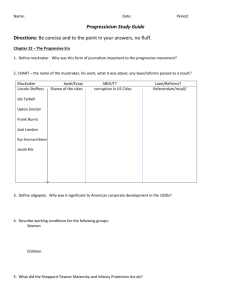Economic Issues
advertisement
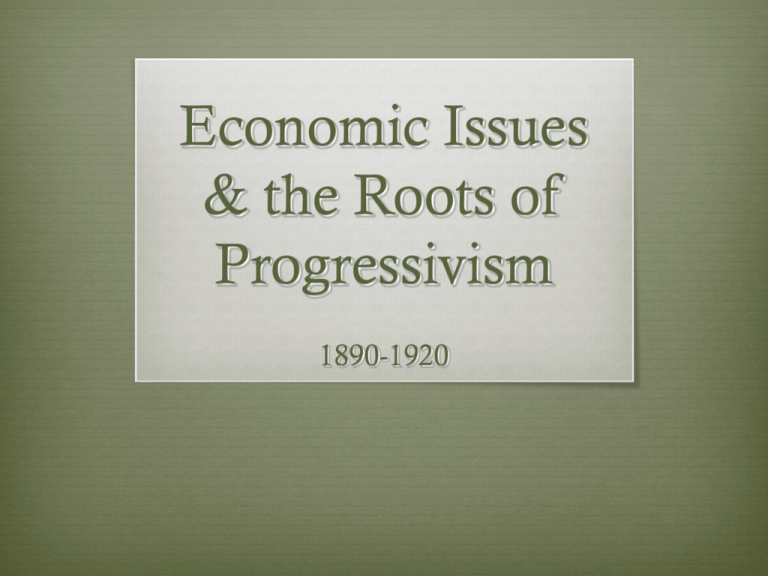
Economic Issues & the Roots of Progressivism 1890-1920 The Gilded Age Laissez-Faire capitalism “Robber Barons” Carnegie (Steel) Rockefeller (Oil) Morgan (Banking) Vanderbilt (Railroads) The haves and the have-nots Economic Ups & Downs Depression of 1893 High unemployment Panic of 1907 Bank failures; tight credit Scrip World War I Mobilization Demobilzation Labor Unrest Homestead Strike (1892) Carnegie Steel Coxey’s Army (1894) Unemployed march on Washington, D.C. Pullman Strike (1894) Railway cars; Eugene Debs Coal Strike (1902) Roosevelt’s “Square Deal” 1905-present Socialist “The Wobblies” Industrial, as opposed to craft The Tariff Protectionism v. Free Trade McKinley Tariff Act (1890) Protectionist Contributed to Depression of 1893 Payne-Aldrich Tariff Act (1909) Showed difficulty in lowering tariffs; led to split among Republicans Underwood-Simmons Tariff Act (1913) Reduced tariff rates Wilson’s “New Freedom” Income Taxes Most of history, US government relies on tariff for income Made Constitutional by 16th Amendment (1913) Progressive (graduated) tax First introduced in Underwood-Simmons Tariff Act 1% if over $4,000 7% if over $500,000 The Federal Reserve System Banking sector in need of greater regulation Federal Reserve Act of 1913 12 Regions Owned by commercial banks through stock Discount rate/money supply The Emerging Middle Class Managerial class Between the haves and the have-nots Appalled at behavior of rich Frightened by behavior of poor Something needs to be done! What is Progressivism? Desire for change Reform is possible - Rejection of Social Darwinism (although still subject to similar biases) Government must intervene Roots of Progressivism Response to Industrialization Created some rich, but left many poor Child labor Women in workforce Fouling of environment Dangers of cities Plight of farmers Roots of Progressivism Populism Farmers Alliances Labor Unions William Jennings Bryan Moral call for fair treatment Roots of Progressivism Rise of Scientific Study Belief that social problems could be solved by applying scientific methods Need to collect data Experiments Roots of Progressivism Religious revivalism The “evils” of modern society Alcohol Gambling Sex Decline of family cohesion Political radicalism Who Were Progressives? Middle Class Northern Educated They knew better Solving problems for poor rather than with poor Influential Methods Scientific Study Exposé Muckraking Lectures Publishing Lobbying Elections Industry Antitrust Laws Minimum Wage Safety Work Week Women Child Labor Consumer Protection Photo by Lewis Hine Urban Life Poverty Public Health Immigration Education Building Codes Crime Corruption Photo by Jacob Riis Women’s Issues Suffrage The vote Morality Safety Birth Control Photo Library of Congress Conservation Pollution Fitness Outdoors Public Parks National Parks Photo Library of Congress Other Areas of Interest Sin Alcohol Prostitution Racial Issues Lynchings Taxation
